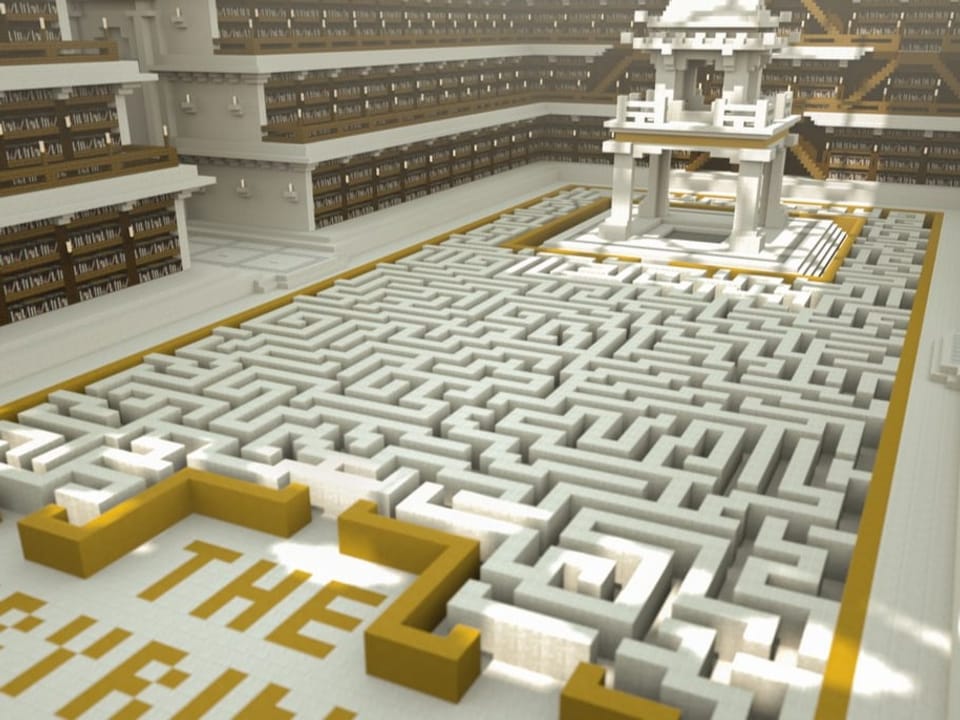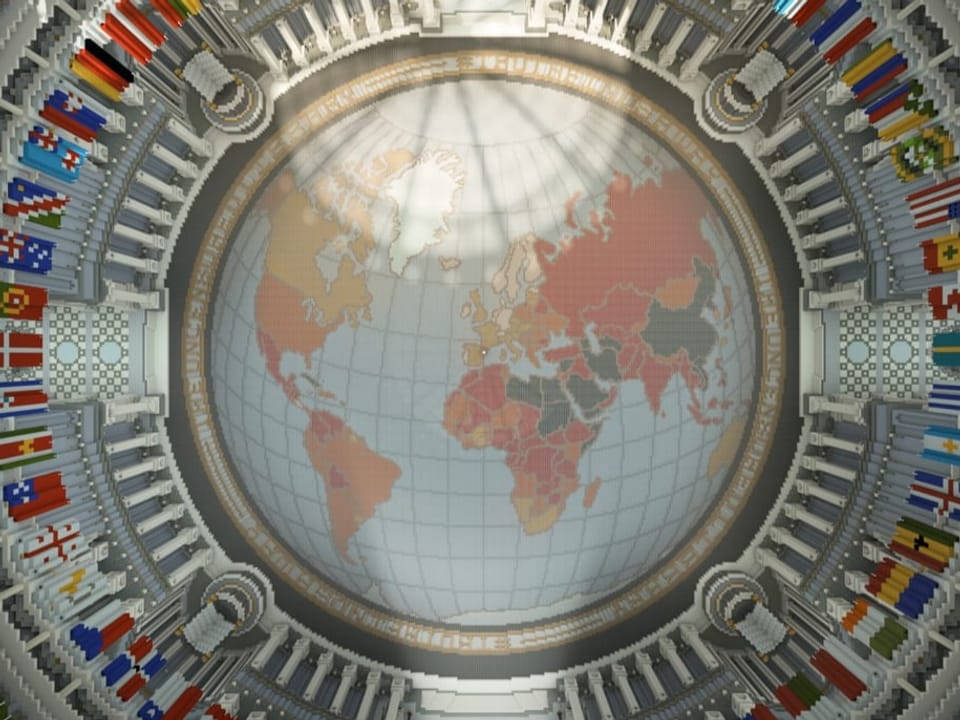The Uncensored Library Cheats on Internet Censorship. It is not the only example.
The uncensored library is an impressive building in the neoclassical style: imposing Greek columns at the entrance gate, a main hall covered with a huge glass dome and six side wings in which the knowledge collected in the library is stored. Five of these pavilions are country-specific – Russia, Egypt, Mexico, Vietnam and Saudi Arabia – and collect articles for journalists who have been banned in their home countries.
24 people from 16 different countries built the uncensored library in just five months, out of a total of 2.5 million building blocks – but not real stones, because the huge library is only in the computer game “Minecraft”. It is a project of the NGO Reporters Without Borders to circumvent state censorship.
While it is easy for authoritarian countries to block certain websites, “Minecraft” – the best-selling PC game of all time – is available everywhere. The server on which the uncensored library is located can be blocked. But so far, hundreds of thousands have downloaded data. If the original document is blocked, the library can easily be accessed again in another location.
cat and mouse game
The Uncensored Library is just one of several attempts to prevent Internet censorship. Governments in East Asia, Central Asia, the Middle East and North Africa in particular are trying to control what their citizens can post and view online. China, for example, censors and blocks nearly all overseas Internet traffic through its “Great Firewall”.
The struggle against such measures is a game of cat and mouse: Wherever activists manage to overcome intelligent censorship, authoritarian regimes quickly find new ways to control Internet access.
For example, after Chinese ISPs blocked certain IP addresses, Internet users simply called up relevant sites via proxy servers abroad – the country even blacklisted the most popular proxies. Anyone who then turned to a VPN tunnel service to establish a secure connection abroad soon discovered that these services were also blocked.
Sports shoe nets in North Korea
Even the Tor network, which redirects Internet traffic through its network nodes and was developed by the United States specifically to protect the privacy of its users, has been blocked by the Chinese government. Other services (still) offer an alternative: Psiphon, for example, which also uses its own network to divert Internet traffic beyond state censorship. In Iran, the service is said to have been used by up to a third of internet users at times.
By the way, not all attempts to circumvent Internet censorship are based on such technological means as Tor or Psiphon. In North Korea there are so-called “sneakernets” – in German: sneaker networks that transmit digital content to people on foot instead of the Internet, for example via USB. Stored on it are Western films and TV shows, which dissidents hope will spur a cultural revolution.
Appointment, June 17, 2022 at 12:55 pm

Lifelong foodaholic. Professional twitter expert. Organizer. Award-winning internet geek. Coffee advocate.









